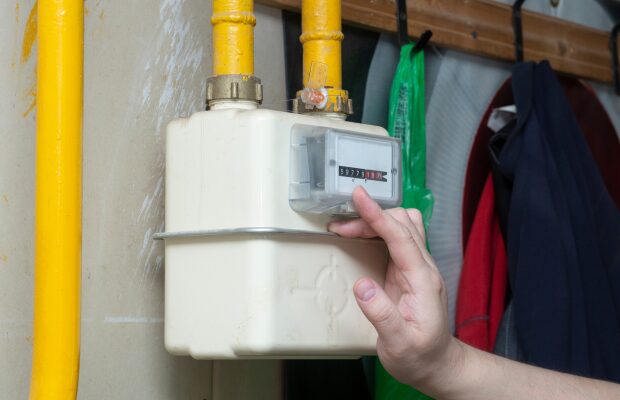As a landlord, you’ll already be well aware of the amount of legislation you have to comply with to legally rent out your properties.
And this year, there are even more important regulation changes set to come into force for landlords.
The Renters Reform Bill: What landlords can expect
The Renters Reform Bill was set to be heard in Parliament last year but was delayed by the Covid-19 pandemic.
It’s looking extremely likely that the Bill will become law this year, which will mean two major changes for you to adapt to as a landlord.
End to ‘no fault’ evictions
Under the Renters Reform Bill, section 21 evictions would be banned.
This means you would need to seek repossession of your rental property through the court system, even at the end of a fixed term tenancy or during a periodic agreement.
However, the Bill also includes plans to revise section 8 eviction rules and improve the court process so you can get your property back quicker despite having no section 21 process to do so.
Lifetime deposits for tenants
Under current rules, you have 30 days to lodge your tenant’s deposit with one of the three government-approved deposit protection schemes.
That will remain the case under the Renters Reform Bill, but instead of a tenant’s deposit being returned to them at the end of their tenancy, it will be passed to their new tenancy and can follow them from property to property under proposals in the Bill.
More details are set to be confirmed about exactly how the lifetime deposit plan will work in practice, but this is an element of the Bill you should keep an eye on as a landlord.
Right to Rent and Brexit
With Brexit now done and dusted, landlord attention has turned to how Right to Rent legislation will work now the UK is no longer part of the European Union.
Since January 1, 2021, the UK has reverted to a points-based immigration system and this could affect the Right to Rent status of tenants from abroad. Currently, you should continue to check passport and national ID cards to prove a tenant’s right to rent a home in the UK, with more details about how the rules will work long term expected by June 2021.
Eviction legislation and coronavirus
In order to protect tenants, eviction notices were banned under the first Covid-19 lockdown back in March 2020 and only reinstated in September.
Since then, landlords have had to provide tenants with six months’ notice, rather than the standard two months, if they wish to regain possession of their property through a section 21 notice.
Shorter notice periods can be given, however, if your tenant is:
• Behaving in an anti-social way, or there is a concern of domestic abuse at your rental property
• Your tenant is six months or more in arrears on their rent payments
• They are in breach of immigration rules and don’t have the ‘Right to Rent’ a property in the UK
Now the UK is back in a national lockdown, evictions have once again been banned and landlords are unable to give notice to tenants until after February 21, 2021.
The end of the stamp duty holiday
The changes to stamp duty in July 2020 are set to end on March 31, 2021.
Since July, landlords have been able to enjoy stamp duty exemption on the first £500,000 of a property’s purchase price, although still have to pay the 3% additional property surcharge.
That’s meant savings of up to £15,000 for landlords looking to bolster their portfolios.
However, stamp duty is set to revert back to previous rules from April 1, 2021, meaning only the first £125,000 of a property’s purchase price will be stamp duty-free for landlords, albeit with the 3% surcharge remaining in place.
The (final) Client Money Protection deadline
Client Money Protection (CMP) has been mandatory for letting agents since April 2019.
If you use a letting agent to collect rent payments from your tenants, they should be part of a Client Money Protection scheme, which ringfences that money should the agent go bust.
Agents were originally given a 12-month grace period to comply with the legislation, but due to the pandemic, this was extended for a further 12 months.
That means the final deadline for compliance is April 1, 2021.
Electrical Installation Condition Reports (EICR)
Since July 1, 2020, landlords issuing new tenancies in England have been required to provide an Electrical Installation Condition Report (EICR) for their rental properties.
The report confirms that electrical installations at your property are safe and compliant and a copy of the report should be given to tenants within 28 days of it being carried out by a qualified electrical engineer. From April 1, 2021, EICRs will be mandatory for all tenancies in England, so if you have an existing tenancy ongoing, you’ll need to have an EICR carried out in advance of this date.
The Making Tax Digital deadline
If you turn over more than £85,000 from your rental properties and / or other businesses, you should be using the Making Tax Digital (MTD) system.
Rather than submitting an annual tax return, MTD means you send HMRC quarterly digital updates on income and expenses, before signing a declaration at the end of the year.
The deadline for using MTD if you turn over more than £85,000 is set to be some time in 2021, but this is yet to be confirmed.
Using a letting agent to stay compliant
Staying compliant with ever-changing legislation, as well as managing your properties and tenancies, can be a huge drain on your time as a landlord.
There are more than 160 pieces of legislation you need to comply with as a landlord, not to mention staying on top of maintenance demands at your rental properties, collecting rent, lodging deposits and renewing tenancies. The list goes on…
By using a letting agent to manage your property, those headaches go away, so contact your local branch of Ellis & Co to see how our property management services could work for you.
Further reading…
For more information on how Brexit could affect you as a landlord, take a look at our recent piece.
And if you need to know more about possible changes to capital gains tax in 2021, our guide can help.








